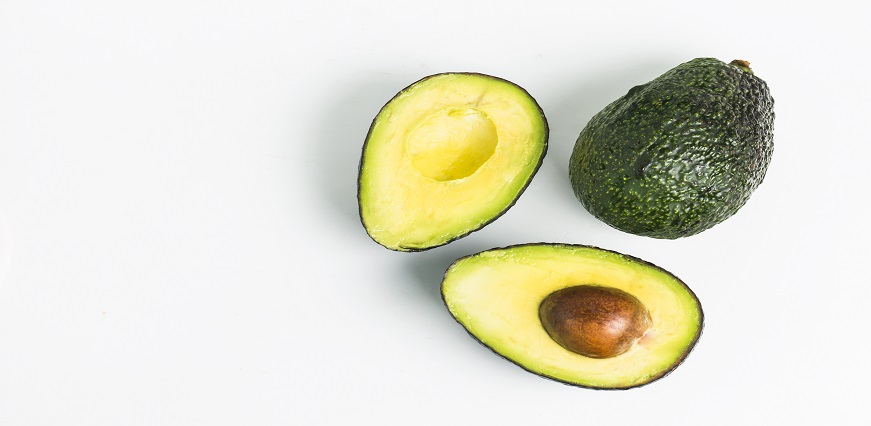





No lab centers are available in this city

Max Lab
Dec 06, 2022
One of the most common ways to improve your digestive health is to increase your fiber intake. Below, you’ll find a list of some high-fiber foods that can help you get started!
Fiber is a type of carbohydrate that the body cannot digest. It is found in plants, such as fruits, vegetables, and whole grains. Fiber helps to keep the digestive system healthy by promoting regularity and preventing constipation.
There are two types of fiber
There are many reasons why fiber is important for our health. For one, it helps to keep us regular. Fiber also helps to bind together stool and move it through our intestines more quickly, which can be helpful if we're experiencing diarrhea. Fiber can also help to bulk up stool, which can be beneficial if we're struggling with constipation.
In addition to keeping our digestive system functioning properly, fiber has also been shown to have other health benefits. It can help to lower cholesterol levels, reduce the risk of heart disease and stroke, and even help with weight loss. So, if you're looking to improve your overall health, make sure you're getting enough fiber in your diet!
A high-fiber diet is essential for good digestive health. Fiber helps to keep the digestive system clean and functioning properly. It also helps to regulate bowel movements and prevent constipation. Fiber is found in fruits, vegetables, whole grains, and beans. It is important to eat a variety of high-fiber foods to get the most benefit.
With our offerings in line with government-mandated prices, Maxlab offers full body checkup packages that cover an exhaustive list of tests for a comprehensive diagnosis of your health. Choose from a range of health test packages based on your needs.
Avocados are a great source of fiber, which is important for digestive health. Fiber helps to keep the digestive system running smoothly and can help to prevent constipation. Avocados are also a good source of healthy fats, which can help to promote a healthy gut.
Pears are a great source of dietary fiber, with about 4 grams per medium-sized fruit. They also contain other nutrients like vitamins C and vitamins K, as well as copper and potassium. Pears are a good choice for those looking to increase their fiber intake, as they can be eaten fresh, canned, or dried.
Strawberries are an excellent source of fiber, with over 3 grams per cup. They're also a good source of vitamins C and K, and folic acid. Strawberry fiber can help to bulk up stools, making them easier to pass. It can also act as a prebiotic, promoting the growth of healthy gut bacteria.
One cup of raspberries contains 8 grams of fiber, which is about 32% of the daily recommended intake for adults. Raspberries are also a good source of vitamins C and K, and they contain manganese, a mineral that is important for bone health.
Raspberries have a high water content, which makes them a refreshing and hydrating food. They are also low in calories, with only 64 calories in one cup. This makes them a great food choice for people who are trying to lose weight or maintain a healthy weight.
Bananas are an excellent source of dietary fiber, providing about 3 grams per medium-sized fruit. They're also a good source of potassium, vitamin C, and B vitamins.
Bananas are easy to digest and can be a soothing food for people with digestive disorders such as IBS or diarrhea. The soluble fibers in bananas can help absorb water and slow down the passage of food through your digestive system, which can help reduce diarrhea symptoms.
When it comes to high-fiber foods, broccoli is one of the best. A single stalk of broccoli contains over 6 grams of fiber, which is more than 20% of the recommended daily intake. Broccoli is also a good source of iron, vitamin C other nutrients.
Brussels sprouts are a type of cruciferous vegetable and are part of the Brassica family, which also includes broccoli, cabbage, and kale. They're nutritionally dense and a good source of fiber, vitamins C and K, folate, and manganese.
Brussels sprouts have high fiber content, with about 3 grams of fiber in one cup. This insoluble fiber helps add bulk to your stool and prevents constipation. The soluble fiber in Brussels sprouts can also help regulate digestion by promoting the growth of healthy gut bacteria.
If you’re looking for high-fiber food to help with your digestive health, split peas are a great option. One cup of cooked split peas contains 16 grams of fiber, which is over half the recommended daily amount for adults. Split peas are also a good source of protein and contain several vitamins and minerals, including iron and potassium.
Chickpeas are a great source of fiber, with one cup providing 12 grams. Chickpeas are also a good source of protein, iron, and magnesium. Plus, they're low in calories and fat.
Adding them to your diet can help you increase your fiber intake and get the nutrients your body needs.
A high-fiber diet is essential for keeping your digestive system healthy and functioning properly. By including these top 9 high-fiber foods in your diet, you can help keep your digestive system on track and improve your overall health. What are your favorite high-fiber foods? Let us know in the comments below!
Also Read:












Sign up takes less than 60 secs and gives you access to your offers, orders and lab tests.
Looks like you are not registered with us. Please Sign up to proceed
OTP will be sent to this number by SMS
We have successfully received your details. One of the agents will call you back soon.
 To reach our help desk call 9213188888
To reach our help desk call 9213188888
No Lab Centers are available in this city
Looks like you are not registered with us. Please Sign up to proceed
OTP will be sent to this number by SMS
Not Registered Yet? Signup now.Looks like you are not registered with us. Please Sign up to proceed





 7982100200
7982100200.png)
Comments